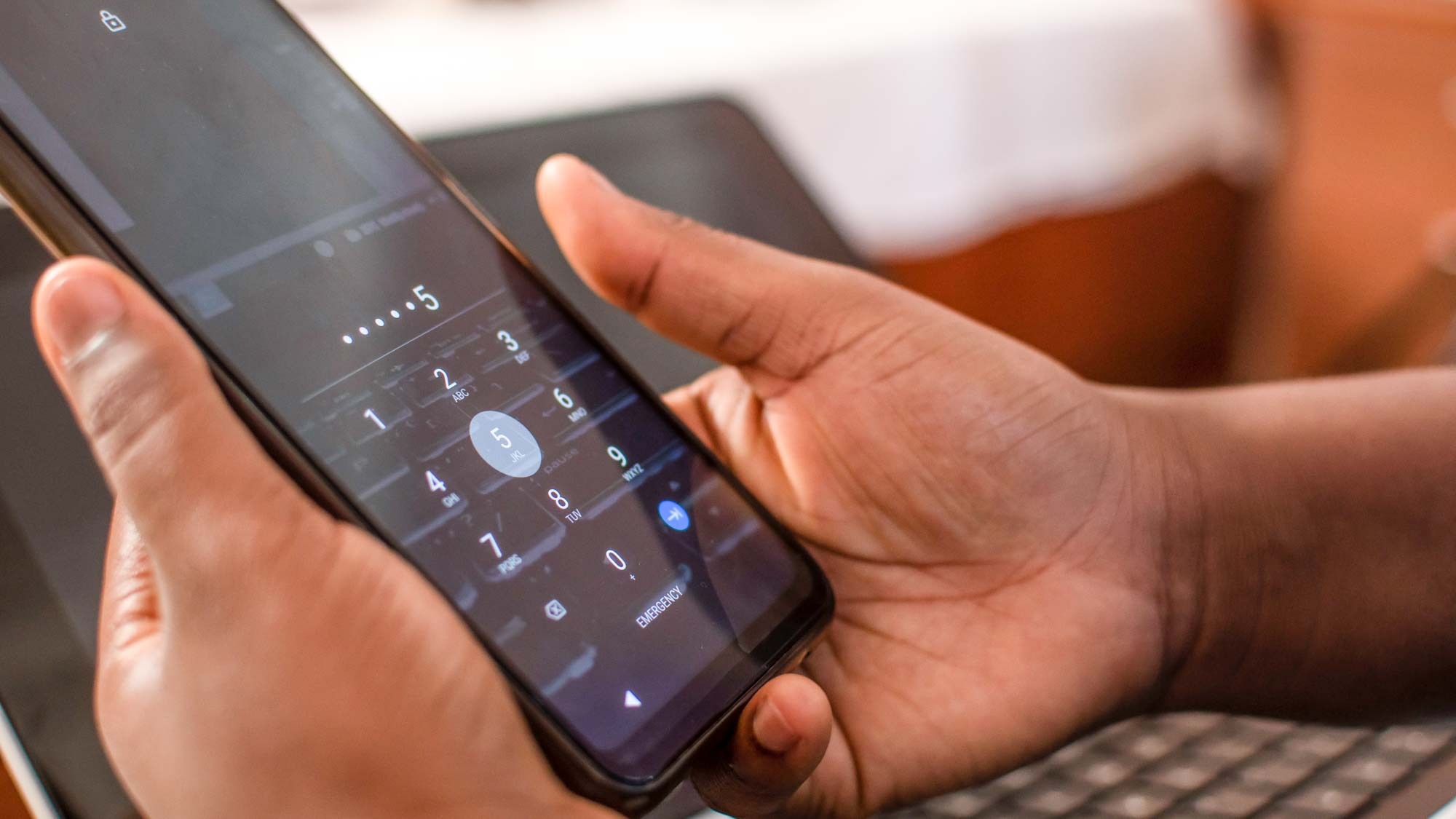Android 14 just tipped for a new feature hackers will absolutely hate
Hiding your PIN from prying eyes is about to get easier

Android 14 could add a new security feature that will help fend off one of the most common ways hackers break into phones.
The second Android 13 QPR3 beta contains a new "Enhanced PIN privacy" feature that can help conceal your code from onlookers. Although this is an Android 13-based feature that will in theory arrive in June with the full QPR3 update, basically no Android manufacturers other than Google implement every update. So the earliest most users are likely to see this feature is when their phone is in Android 14.
Found within the Settings app's security options by XDA Developers, the Enhanced PIN privacy toggle stops the phone from displaying an animation as you enter your PIN. Looking at the sample video that XDA recorded, we can see that tapping a number on the keypad doesn't cause it to pop up or highlight like it normally would, nor do any numbers briefly appear in the password box as they're entered.
Combined, this should mean that while an onlooker could still see how many digits long your PIN is, they'd have next to no idea which numbers you pressed unless they looked very closely.
The trade-off is that you also can't tell if you've pressed the right numbers or not until you are either let into your phone or get an incorrect PIN warning. If you are prone to typos, particularly when trying to quickly type your PIN to unlock your phone, this could be a frustrating setting to enable.
Also in the beta, there's a new feature that will let the phone automatically accept your PIN and open up after you input the final digit, an option for user convenience rather than security. You already have this as an option on Samsung phones, but getting this as a basic Android feature means any phone maker will be able to implement it with little effort.
Google Pixel users will likely find these features go live for them in a future Pixel Feature Drop. If you're not willing to quickly trade in your phone for a Google Pixel 7 or other Google device, then you'll likely need to wait for Android 14 to launch (presumably this fall alongside the Google Pixel 8) then either wait for the update to roll out to your handset, or buy a new Android phone next year with it pre-installed.
Sign up to get the BEST of Tom's Guide direct to your inbox.
Get instant access to breaking news, the hottest reviews, great deals and helpful tips.
Android 14 isn't looking like an enormous upgrade just yet. But changes like split ringtone and notification volume settings and a variety of refinements for developers should still justify a download when it's available. We should find out more when Google I/O 2023 kicks off May 10.
More from Tom's Guide

Richard is based in London, covering news, reviews and how-tos for phones, tablets, gaming, and whatever else people need advice on. Following on from his MA in Magazine Journalism at the University of Sheffield, he's also written for WIRED U.K., The Register and Creative Bloq. When not at work, he's likely thinking about how to brew the perfect cup of specialty coffee.
